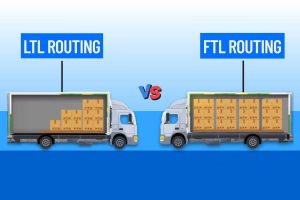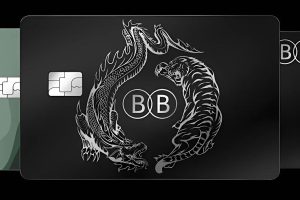To build an online marketplace you need to have proper planning and execution.
First, Developing a profitable idea which is Planning
1. Identify a Gap in the Market: The first step towards developing a profitable idea is to identify a gap in the market. This can involve conducting market research to understand what products or services are currently available, what customers are looking for, and where the gaps in the market lie. You can also look for opportunities to improve on existing products or services or to offer something entirely new.
2. Understand Your Target Audience: Once you’ve identified a gap in the market, it’s important to understand your target audience. This involves researching their needs, preferences, and pain points to ensure that your idea meets their needs and solves their problems. You can conduct surveys, focus groups, or other research methods to get a better understanding of your target audience.
3. Assess Your Skills and Resources: Before finalizing your idea, it’s important to assess your skills and resources. This can include evaluating your expertise in the industry, your financial resources, and your ability to bring the idea to life. If you lack the necessary skills or resources, you may need to consider partnering with someone who can help you.
Second, Choosing a suitable platform which is Execution
1. Understand Your Target Audience: Before choosing a platform, it’s important to understand your target audience and where they spend their time. For example, if your target audience is primarily on social media, you may want to consider creating a social media page. If they’re more likely to visit a physical store, you may want to consider opening a brick-and-mortar location.
2. Consider Your Budget: The platform you choose will also depend on your budget. Some platforms are more expensive than others, so you’ll need to consider how much you’re willing to invest in your business. For example, building a mobile app can be expensive, while creating a simple website may be more cost-effective.
3. Evaluate Your Resources: Finally, you’ll need to evaluate your resources to determine which platform is most feasible for your business. This can include assessing your technical expertise, your ability to maintain the platform, and your ability to market your business on the forum.
Developing a profitable idea and choosing a suitable platform are critical steps in building a successful online marketplace. You can increase your chances of success by conducting market research, understanding your target audience, assessing your skills and resources, and evaluating different platforms.
Online marketplaces serve as a virtual marketplaces where multiple vendors can sell their products or services to many customers.
The marketplace operator typically earns revenue by taking a commission on each transaction made on the platform.
Online marketplace business model canvas generally includes 9 elements.
1. Customer Segments: The specific groups of customers that the business is targeting.
2. Value Proposition: The unique value that the business offers to its customers to solve their problems or meet their needs.
3. Customer Relationships: The types of relationships that the business establishes with its customers.
4. Channels: The various ways that the business reaches and interacts with its customers.
5. Key Activities: The main activities that the business needs to perform to create and deliver its value proposition.
6. Key Resources: The resources that the business needs to create and deliver its value proposition.
7. Key Partners: The partners or alliances that the business relies on to create and deliver its value proposition.
8. Revenue Streams: The ways that the business generates revenue from its customers.
9. Cost Structures: The costs that the business incurs to create and deliver its value proposition.
By using the Business Model Canvas, businesses can better understand their key elements, how they interact with each other, and how they contribute to the overall success of the business.
There are several ways to monetize an online marketplace, depending on the business model and the type of products or services being offered. Some common monetization include,
Transaction Fees
Charge a percentage of each transaction made on the platform. For example, Airbnb charges hosts a 3% fee on each booking and guests a service fee of up to 14.2%.
Subscription Fees
Charge sellers or buyers a monthly or yearly fee for access to premium features, such as priority listings, advanced analytics, or special promotions.
Advertising
Sell ad space on the platform to businesses looking to target your audience. This could include banner ads, sponsored posts, or product placements.
Commission Fees
Take a commission on sales made by sellers on your platform. For example, Etsy charges sellers a 5% transaction fee and a 3% + $0.25 payment processing fee.
Listing Fees
Charge sellers a fee to list their products or services on your platform. This fee could be a one-time fee or a recurring fee, depending on the business model.
Premium Membership
Offer a premium membership option to buyers or sellers that provide additional benefits or discounts, such as free shipping or lower transaction fees.
Affiliate Marketing
Partner with other businesses or products and earn a commission for any sales made through your platform.
It’s important to note that not all monetization strategies may be applicable to every online marketplace, and choosing the right strategy will depend on your business goals and the needs of your users.
Starting an online business can be advantageous in many ways compared to traditional brick-and-mortar businesses. At the same time, it has some disadvantages which can be overcome by good tactics and strategy.
Advantages of Starting an Online Business
1. Lower startup costs: Starting an online business typically requires lower startup costs than starting a brick-and-mortar business. This is because you don’t need to pay for rent, utilities, and other expenses associated with a physical location.
2. Access to a wider customer base: With an online business, you can reach customers from all over the world, rather than just your local area.
3. Flexibility: Running an online business allows for greater flexibility in terms of where and when you work. You can work from anywhere with an internet connection, and set your own schedule.
4. Scalability: Online businesses can be scaled quickly and easily, allowing you to grow your business without the same limitations as a physical location.












